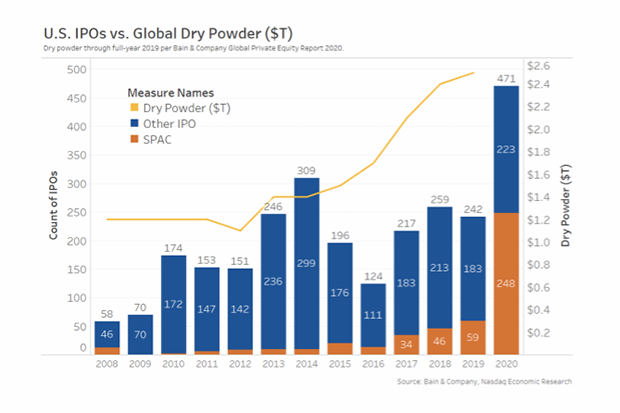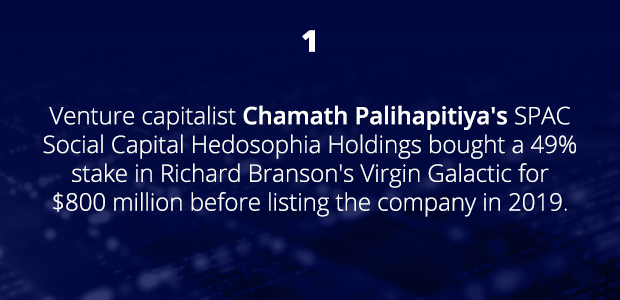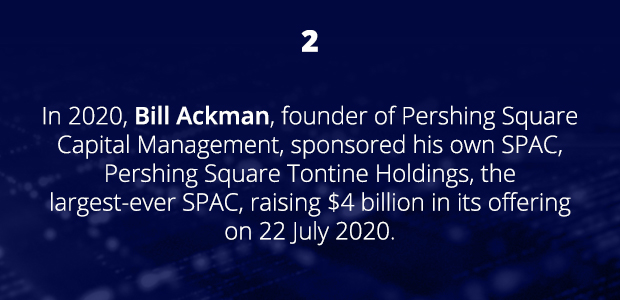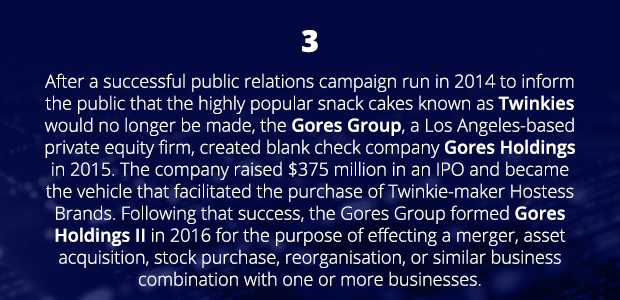Special Purpose Acquisition Companies (SPAC) and the role of investor relations
Scroll to read more
What is a SPAC?
Essentially, it is a team that gets together with an investment mandate or thesis, which then raises money by listing on a stock market. It must find a company or business to buy within 24 months, which it then reverses into the listing with the cash raised. If no suitable investment can be found within two years, or a deal doesn’t get approved by more than 75% of the SPAC’s investors, the money is returned. Also known as "blank check companies," SPACs have been around for decades. However, it is only recently that they’ve gained in popularity, attracting big-name underwriters and investors.
The catalyst seems to have been the US government shutdown of late 2018 and early 2019 when the US Securities and Exchange Commission (SEC) was unable to proceed with the review of traditional IPOs. During this period, SPACs were able to go public without the SEC’s approval or feedback, thanks to SEC regulations that allow companies to make their own IPO registration effective if they’re willing to establish a set IPO price at least 20 days before going public.
The growth of SPACs has also coincided with the increased size of private equity markets and the growth of private equity dry powder (a term which started as slang, but nowadays refers to the amount of committed, but unallocated capital a firm has on hand, i.e., unspent cash reserve waiting to be invested).

High-profile SPAC deals
SPACs in Africa
An example of a SPAC in South Africa is Capital Appreciation. The management team raised R1bn and listed on the JSE’s main board in October 2015. In February 2017, the company announced that it would focus on the FinTech sector and made three acquisitions, including African Resonance, Dashpay and Synthesis Software Technologies. In June 2017, Capital Appreciation migrated to the Software and Computer Services sector on the JSE. The company’s founders and managers are Michael Pimstein, Bradley Sacks and Alan Salomon.
As recently as last month, African Gold Acquisition Corp raised $360 million and listed as a SPAC on the New York Stock Exchange (NYSE) on Friday 16 February 2021. As the first African SPAC to list on the NYSE with interest in gold mining and potential acquisitions in “well-trodden mining countries”, the offer was heavily oversubscribed.
The role of investor relations
The increased popularity of SPACs is symbolic of the evolution of capital markets. It underscores the readily available sources of capital, standing ready to fund those opportunities with the most compelling investment proposition. This phenomenon also highlights the importance of investor relations, which can make a fundamental difference even before an IPO. Investor relations is a vital means of bridging the time difference between capital investment and economic return. Similarly, it provides an effective feedback loop back into the boardroom. The quality of investor relations can be a real competitive advantage. The market rewards effective communication, visibility, and transparency in the long run. Research, and history, has proved that in the long run, markets are indeed efficient. To this end, companies who choose to relegate investor relations to regulatory compliance do so at their peril.
Special Purpose Acquisition Companies (SPACs) have become immensely popular in the US. A SPAC is a company with no commercial operations, formed to raise capital through an Initial Public Offering (IPO) for the purpose of acquiring an existing company. In 2019, 20% of Initial IPOs in the US were SPACs. Last year, this grew to over 50% with 248 SPACs raising a staggering $83 billion. This momentum seems to be holding into 2021.
Contact Nikki Catrakilis-Wagner at Aprio Investor Relations on nikki@aprio.co.za for help with developing a compelling and effective investor relations programme or visit our website on www.aprioir.co.za



